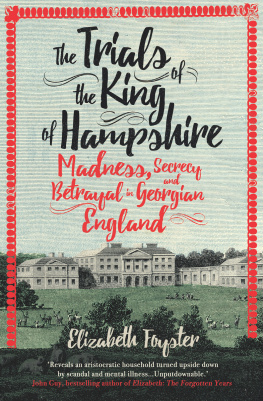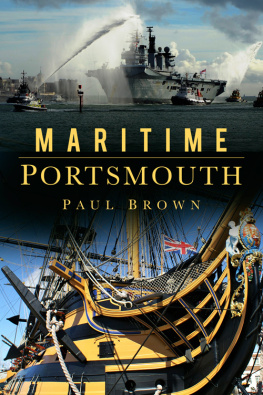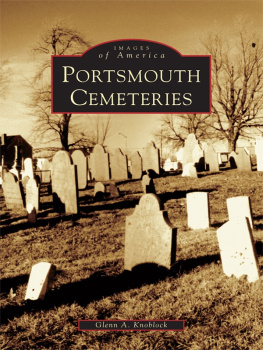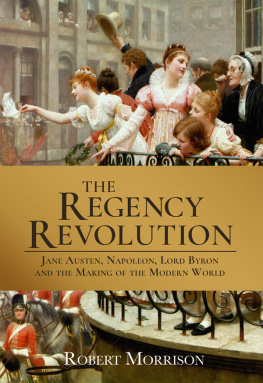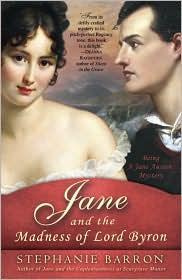
Contents
A Oneworld Book
First published by Oneworld Publications, 2016
This ebook edition published 2016
Copyright Elizabeth Foyster 2016
The moral right of Elizabeth Foyster to be identified as the Author of this work has been asserted by her in accordance with the Copyright, Designs, and Patents Act 1988
Image credits and permissions can be found in the List of Illustrations, which constitutes an extension of this copyright page
All rights reserved
Copyright under Berne Convention
A CIP record for this title is available from the British Library
ISBN 978-1-78074-960-0
eISBN 978-1-78074-961-7
Typeset by Palimpsest Book Production Limited, Falkirk, Stirlingshire
Oneworld Publications
10 Bloomsbury Street
London WC1B 3SR
England
Stay up to date with the latest books,
special offers, and exclusive content from
Oneworld with our monthly newsletter
Sign up on our website
www.oneworld-publications.com
Heir
Husband
Cuckold
King
The gift

T HE DAY-LONG JOURNEY from his Hampstead home to the village of Hurstbourne Priors in Hampshire gave a busy man like Coulson Fellowes a rare opportunity to stop and think. He set out on 14 January 1768, accompanied by his wife, Urania. Now aged seventy-one, he had owned Mulys House on the Belsize estate in Hampstead for the last forty years or so, and, like so many of his wealthy neighbours, he prized its location. Below him lay London, an ever-expanding urban sprawl, where he had made his fortune as a merchant. He had a home there too, in St Jamess Street, but in Hampstead he was removed from the pressures of trade, and the hubbub of city living. Here he could watch the prices and the duties to be paid on the goods he imported, from coffee, tea, and chocolate, to fabrics, brandy, candles, and paper, and reach London easily when decisions and deals had to be made. But he and his wife could also enjoy the benefits of the fresh air and open countryside that Hampstead offered, and socialize with their like-minded neighbours. He told himself that he had the best of both worlds.
Coulson was enough of a businessman to know that the safest investment in the eighteenth century was land. The commercial world was an unpredictable one, in which fortunes could be as easily lost as made. Coulson had been in his twenties when the South Sea Bubble, that gamble in stocks, shares, and overseas trade, had so spectacularly burst. His fathers older brother had been involved rather too closely, becoming Deputy Governor of the South Sea Company in 1718. The scars were still felt, and Coulsons father, William, had played it safe, rejecting the world of commerce for that of the law to make his living. He had been successful, rising to the position of Senior Master in Chancery. Williams marriage to an heiress was another shrewd move, for when her father died in 1718 he was left with sixty thousand pounds, with the stipulation that he should invest the inheritance in Devon. It was in this way that the Fellowes family had come to own the Eggesford estate in mid-Devon. The house that William rebuilt there was in red-brick and in Palladian style. It was a bold statement to society: we have arrived.
Inheriting Eggesford from his father, Coulson became a member of the new landed elite, whose wealth and good fortune was so vital in shaping Georgian England. Not only did he play a role in the expanding commercial economy, Coulson could also afford to participate in the many pleasures of eighteenth-century society. True gentility, Coulson knew, was about polite manners and conduct. A man had to prove himself a gentleman; this was not something that could be inherited or bought. Coulson needed to demonstrate that he belonged. He set about this task with enthusiasm. He bought tickets to see plays and hear concerts. He read newspapers, purchased expensive volumes of maps and history books, and established a friendship with John Pridden, a bookseller based in Fleet Street. Relishing the opportunities on offer in Enlightenment London, he joined one of the most successful of learned societies, the Society of Arts. Once the new building of St Johns Church in Hampstead was completed, he attended services and paid fees for a pew. In adjacent pews sat other successful city merchants, as well as respected physicians and leading lawyers.
Like his father, Coulson made a very good marriage. In April 1725, he married Urania, the daughter of Francis Herbert of Oakley Park. At seventeen years old, she was under-age, but, with a fortune of ten thousand pounds, quite a catch. They had two sons, William and Henry Arthur, and three daughters, Mary, Urania, and Dorothea. Coulson gave his wife a regular clothes allowance, with which she purchased silk and velvet gowns and coats. He bought her treats such as jars of raisins, and the couple enjoyed his purchases of venison and wine. Improvements were made to the house at Eggesford, and the family began to spend more time there after the birth of Mary in August 1729. Additional land was bought by Coulson in West Ham, Essex, and by 1731 he was paying for the expenses of stables and a coachmaker. In 1737, Coulson acquired the Ramsey Abbey and Abbots Ripton estates near Huntingdon in Cambridgeshire. Landed wealth brought political position; Coulson was MP for Huntingdonshire from 1741 to 1761, and was a sheriff in Devon for two years. With a growing family and so much responsibility, Coulson needed to take care of himself. Once or twice a year, he paid Mr Arnold Langley for bleeding him, a fashionable practice that was thought to bring health benefits. He never neglected his appearance, and made payments to a barber for shaving, and for wigs and breeches. He looked and acted the eighteenth-century gentleman.
Now on this long journey to Hampshire, Coulson could sit back in his coach (perhaps the one he had lined with a rich crimson Genoa velvet), and reflect on his achievements. The greatest of them was the reason for this journey: the marriage of the daughter who shared his wifes name, Urania. On 27 August 1763, more than four years earlier, Urania had married John Wallop, the 2nd earl of Portsmouth. Their wedding had taken place at St Georges Church in Hanover Square, and as a wedding present the groom had presented his wife with a pair of three-drop diamond earrings and a diamond pin. But his most important gift was his familys title: Urania Fellowes had become Lady Portsmouth, the 2nd countess of Portsmouth.
Despite all his business successes and landed wealth, it was Urania who had taken the Fellowes family to the very top of the eighteenth-century social ladder. Her marriage opened the door to the exclusive world of the aristocracy.
With Uranias title came all important lineage: the means of tracing power and status far back in time. The Wallops boasted that their family line descended from pre-Norman times, and certainly they had been landowners in Hampshire since at least the thirteenth century. But what interested Coulson most was their more recent family history. It was a story of prudent political choices, good fortune, and chance meetings. Coulson learned that the 2nd earls grandfather was a loyal Whig supporter, who had been appointed a Lord of the Treasury in 1717. In the 1730s, he had been rewarded by Robert Walpole with a series of positions in Hampshire, including Lord Lieutenant and Vice-Admiral. A grand tour of Europe led him to the court of Hanover, where he met and befriended the Elector of Hanover, later George I. Royal support for Wallop continued with George II and George III, and he was first elevated to the House of Lords as Baron Wallop and Viscount Lymington in 1720, and then made the 1st earl of Portsmouth on 11 April 1743.

